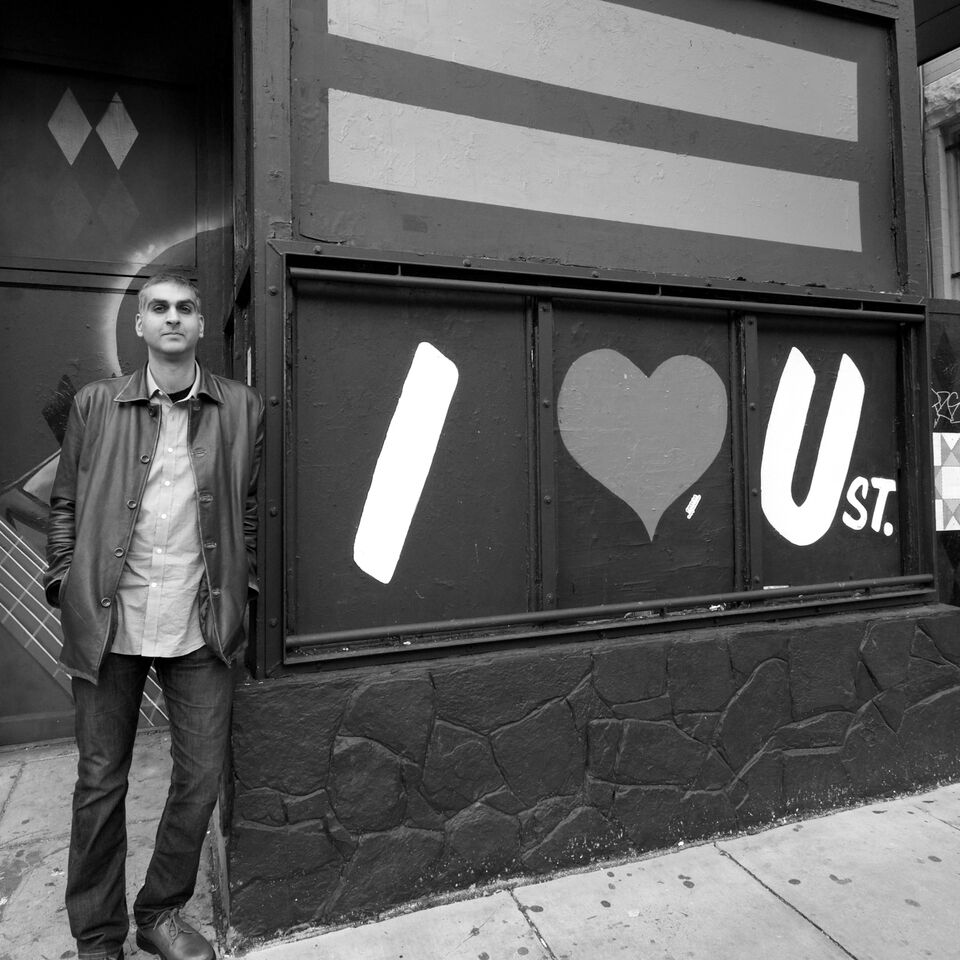This year will mark a decade that drummer and music journalist Sriram Gopal has called Washington, D.C., home. His album The Fourth Stream, released this week and featuring a number of the area’s top musicians, reflects his immersion in the arts scene of the nation’s capital. In addition to contemporary jazz and rock sounds, The Fourth Stream’s sound draws from South Asian, Middle Eastern, and other global influences.

The Fourth Stream is Gopal’s first album as a bandleader, and we learned more about him and the album in our interview, shared below.
This year marks 10 years of living in D.C. for you. How has moving to D.C. affected you musically?
I wouldn’t say that living in D.C. has affected me in terms of my influences. That said, the city punches above its weight in terms of arts and culture, so I’ve crossed paths with many wonderfully creative people. The jazz scene here is small, but full of talent. The musicians who are on this album are not only my favorite in the area, but some of my favorite players, period. I put together a wishlist of musicians when I was in the planning process and, for the most part, everyone said yes.
Who are your musical influences?
The first music I ever got really into was that of The Beatles, I must have been about 6 or 7. Stewart Copeland of The Police was my main inspiration for playing drums, that happened when I was junior high. The prog rock band, Rush, was also a big influence. I got more into jazz and improvisational music towards the end of high school and into college. Miles Davis, Art Blakey, Brian Blade, and Joshua Redman all stand out in my mind. Of course, Indian music has been a constant as that’s what my parents listen to. There was a lot of Carnatic music around the house growing up, although I never studied it. I also enjoy the South Asian electronic sound that Nitin Sawhney helped popularize along with acts like MIDIval Punditz, Karsh Kale, and Cheb-i-Sabbah. The Fourth Stream reflects all of these influences pretty well, I think.
Do you have a favorite tune on The Fourth Stream? Why is it your favorite?
I don’t know that I could choose a favorite because I picked each of these songs for a particular and personal reason. I will say that “Nadia” is the one that most of my friends respond to because it’s the catchiest. I was most concerned with how “Como Pod’a Groriosa” would turn out because that was the biggest stretch. I mean, how many 13th century hymnals does one hear on jazz recordings? But I’m really pleased with the result.
The Fourth Stream is your first album as a bandleader. What is that role like for you, compared to the drummer role?
The act of playing drums doesn’t change at all in the shift from being a sideman to being a bandleader. It’s the organizational element that changes. I’m responsible for booking gigs, scheduling rehearsals, making sure everyone gets paid, and having a vision for the overall aesthetic. In many ways, it’s like running a small business. There are times when I wish that I could be “just” the drummer in someone else’s band, but I have to take a leading role in order to play the type of music that I hear in my head.
The track “Bengali Dhun” honors Subcontinental Drift, a District-based, South Asian community arts organization you were deeply involved with. Can you tell us more about how you were involved?
I wasn’t one of the founders of Sub Drift, but I was one of the chief organizers from its formation in 2007 up until 2014. There aren’t many arts-based ventures that start in D.C. and then go to places like New York, Chicago, and San Francisco, but Sub Drift is a rare example. The group is still very active in D.C. and a wonderful bunch of people are making sure that it stays true to the original vision of being an inclusive space where South Asians are free to express themselves creatively. My work with Subcontinental Drift is high on the list of my proudest accomplishments, maybe even at the top.
Where can we catch your next live performance?
I’m celebrating the album’s release with a launch party on May 29th, which is also my 40th birthday, so people who read this interview should come out and help me celebrate! The show will take place at 7:30 p.m. at the Atlas Performing Arts Center in D.C. There’ll be an after party in the U Street/Shaw area, but the location is still to-be-determined. People who are interested can get updates at the event page on the Book of Faces.
* * *
Pavani Yalamanchili is an editor at The Aerogram. Find her on Twitter at @_pavani, and follow The Aerogram at @theaerogram and on Facebook.












